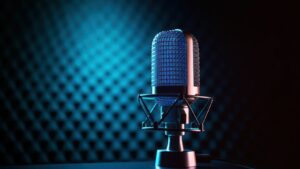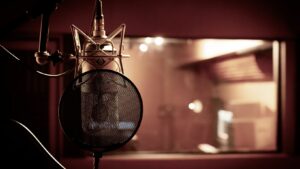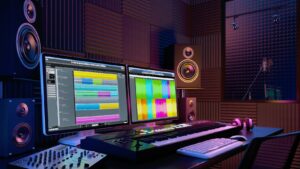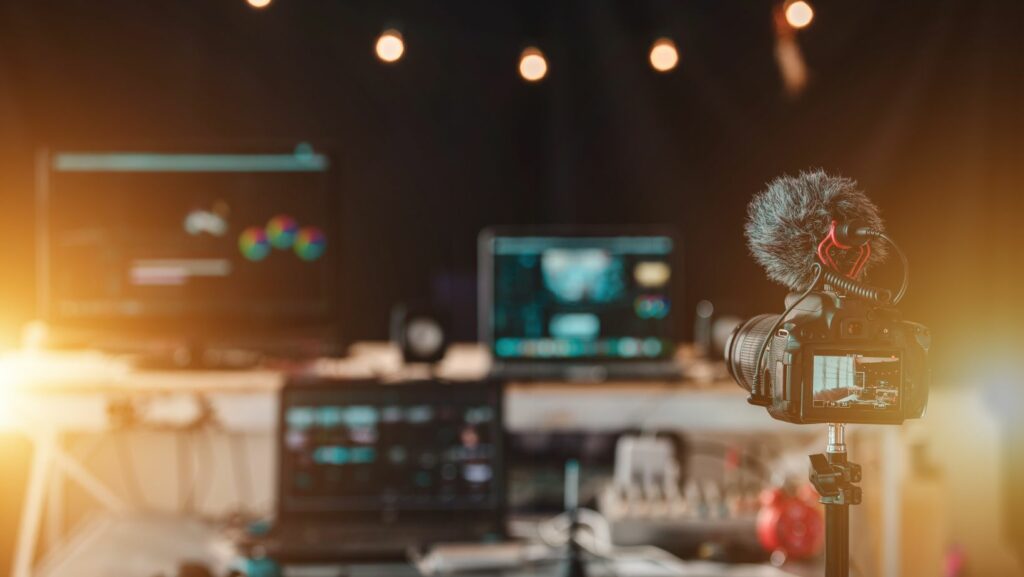 Creating the perfect sound in a music studio hinges on having the right gear. Whether you’re a seasoned producer or an aspiring musician, the equipment you choose can make or break your recording sessions. From microphones to mixing consoles, each piece of gear plays a crucial role in capturing and shaping your unique sound. In today’s rapidly evolving music industry, staying updated with the latest studio technology is essential. With countless options available, selecting the right gear can feel overwhelming. However, understanding the essentials and how they fit into your workflow can simplify the process and enhance your creativity. Investing in quality music studio gear not only boosts your production quality but also elevates your artistic potential. As technology advances, musicians and producers have more tools than ever to bring their visions to life. Discovering the right combination of gear can be the key to unlocking new levels of creativity and success in the studio.
Creating the perfect sound in a music studio hinges on having the right gear. Whether you’re a seasoned producer or an aspiring musician, the equipment you choose can make or break your recording sessions. From microphones to mixing consoles, each piece of gear plays a crucial role in capturing and shaping your unique sound. In today’s rapidly evolving music industry, staying updated with the latest studio technology is essential. With countless options available, selecting the right gear can feel overwhelming. However, understanding the essentials and how they fit into your workflow can simplify the process and enhance your creativity. Investing in quality music studio gear not only boosts your production quality but also elevates your artistic potential. As technology advances, musicians and producers have more tools than ever to bring their visions to life. Discovering the right combination of gear can be the key to unlocking new levels of creativity and success in the studio.
Music Studio Gear
Selecting the right music studio gear ensures high-quality sound production. Critical components shape the overall studio experience.
Audio Interfaces
 Audio interfaces act as the bridge between instruments and computers. Essential for converting analog signals to digital, they come in various configurations tailored to specific needs. Popular options include Focusrite Scarlett and Universal Audio Apollo series. Choosing a model depends on factors like input/output needs and resolution requirements.
Audio interfaces act as the bridge between instruments and computers. Essential for converting analog signals to digital, they come in various configurations tailored to specific needs. Popular options include Focusrite Scarlett and Universal Audio Apollo series. Choosing a model depends on factors like input/output needs and resolution requirements.
Studio monitors provide accurate sound reproduction for mixing and mastering. Key brands such as Yamaha and KRK deliver balanced frequency response. Placement and acoustic treatment of the room significantly affect performance. Setting studio monitors at ear level enhances precision.
MIDI Controllers
MIDI controllers enable musicians to input music with ease. Featuring keys, pads, and knobs, they integrate with digital audio workstations. Renowned models include Akai MPK and Native Instruments Komplete Kontrol. The choice hinges on portability preferences and compatibility with existing software.
Recording Equipment
Selecting the right recording equipment is crucial for capturing high-quality sound in music production. Each piece, from microphones to acoustic treatment, plays a distinctive role in the studio.
Microphones
Microphones capture audio with precision, making them essential for any music studio. Condenser microphones, like the Neumann U87, offer sensitivity for vocals and acoustic instruments. Dynamic microphones, such as the Shure SM58, excel in recording live sound and handling high sound pressure. Ribbon microphones, known for their warm tones, are favored for vocals and ambient sounds.
Headphones
 Headphones provide critical monitoring during recording sessions, ensuring accurate sound reproduction. Closed-back headphones, like the Beyerdynamic DT770, isolate external noise, making them ideal for tracking. Open-back headphones offer natural soundscapes for mixing and mastering, with models like the Sennheiser HD 650 standing out for their clarity and comfort. Choosing high-quality headphones aids consistent studio performance.
Headphones provide critical monitoring during recording sessions, ensuring accurate sound reproduction. Closed-back headphones, like the Beyerdynamic DT770, isolate external noise, making them ideal for tracking. Open-back headphones offer natural soundscapes for mixing and mastering, with models like the Sennheiser HD 650 standing out for their clarity and comfort. Choosing high-quality headphones aids consistent studio performance.
Acoustic treatment enhances recording quality by managing sound reflections. Acoustic panels reduce unwanted echo and reverberation in the studio environment. Bass traps control low-frequency buildup near corners, providing a balanced acoustic response. Diffusers, positioned strategically, scatter sound waves to minimize standing waves. Implementing effective acoustic treatment shapes a professional studio atmosphere.
Software and Plugins
Software and plugins form the backbone of modern music production. They enable professionals to harness and manipulate sound with precision, fostering creativity and efficiency in the studio.
Digital Audio Workstations (DAWs)
Digital Audio Workstations, or DAWs, are central to any music production setup. DAWs like Ableton Live, FL Studio, and Pro Tools offer a range of functionalities from recording to editing and mixing. These platforms support various audio formats and provide tools like MIDI sequencing, virtual instruments, and effects processing, effectively transforming computers into fully-equipped sound studios. Choosing the right DAW depends on the producer’s workflow preferences and genre needs.
Virtual Instruments
Virtual instruments extend the creative possibilities for musicians by providing a wide array of sounds, from realistic emulations of orchestral instruments to synthesized futuristic tones. Spectrasonics Omnisphere, Native Instruments Kontakt, and Xfer Serum are notable virtual instruments that cater to diverse sonic requirements. They integrate with DAWs, allowing seamless control and modification of sound directly within projects, thus enriching the musical palette available to artists.

